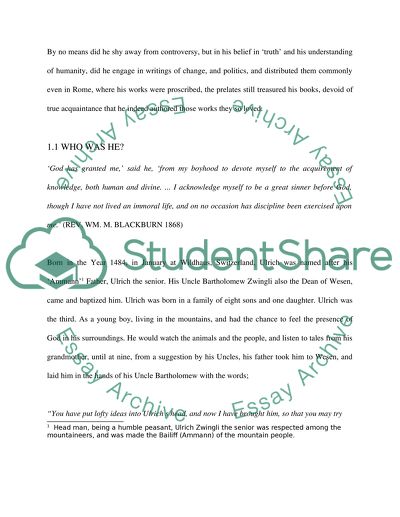Cite this document
(“Ulrich Zwingli - A Religious Reformer Research Paper”, n.d.)
Retrieved de https://studentshare.org/religion-and-theology/1391286-ulrich-zwingli-a-religious-reformer
Retrieved de https://studentshare.org/religion-and-theology/1391286-ulrich-zwingli-a-religious-reformer
(Ulrich Zwingli - A Religious Reformer Research Paper)
https://studentshare.org/religion-and-theology/1391286-ulrich-zwingli-a-religious-reformer.
https://studentshare.org/religion-and-theology/1391286-ulrich-zwingli-a-religious-reformer.
“Ulrich Zwingli - A Religious Reformer Research Paper”, n.d. https://studentshare.org/religion-and-theology/1391286-ulrich-zwingli-a-religious-reformer.


